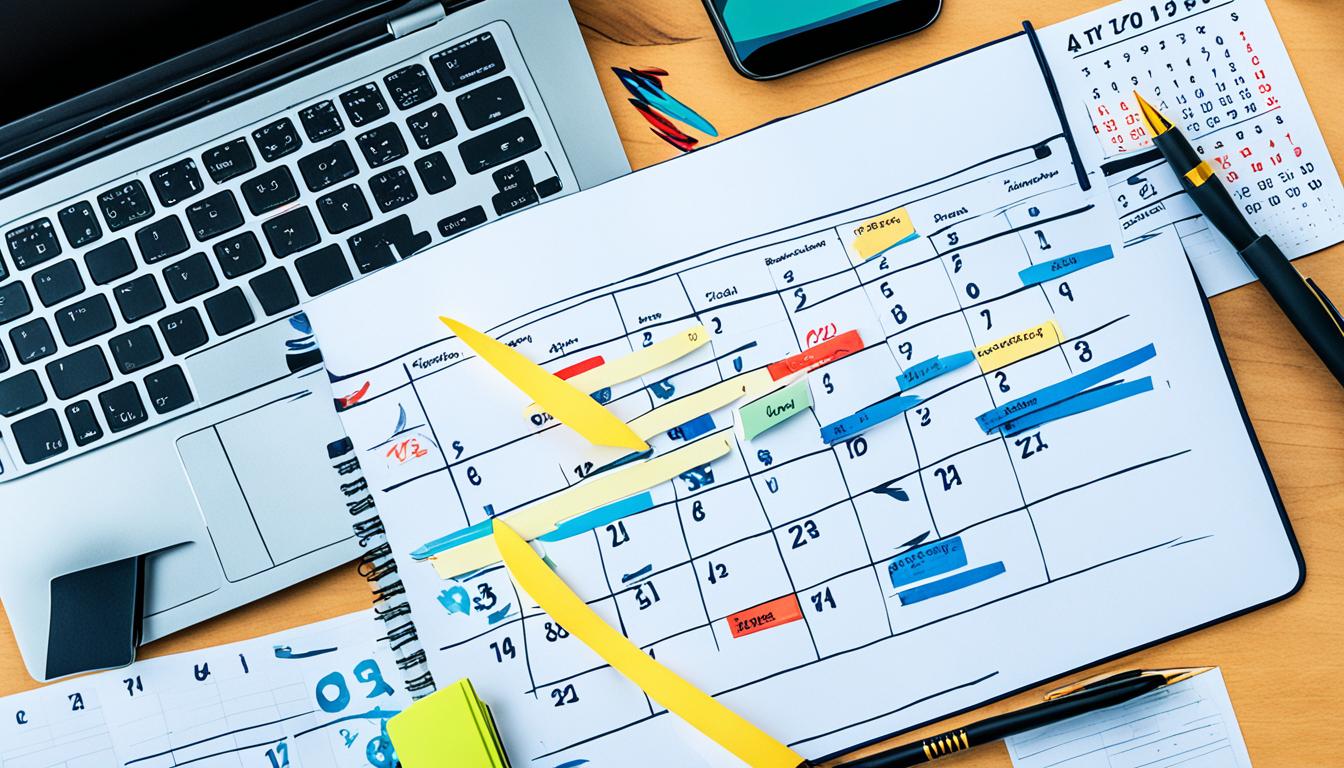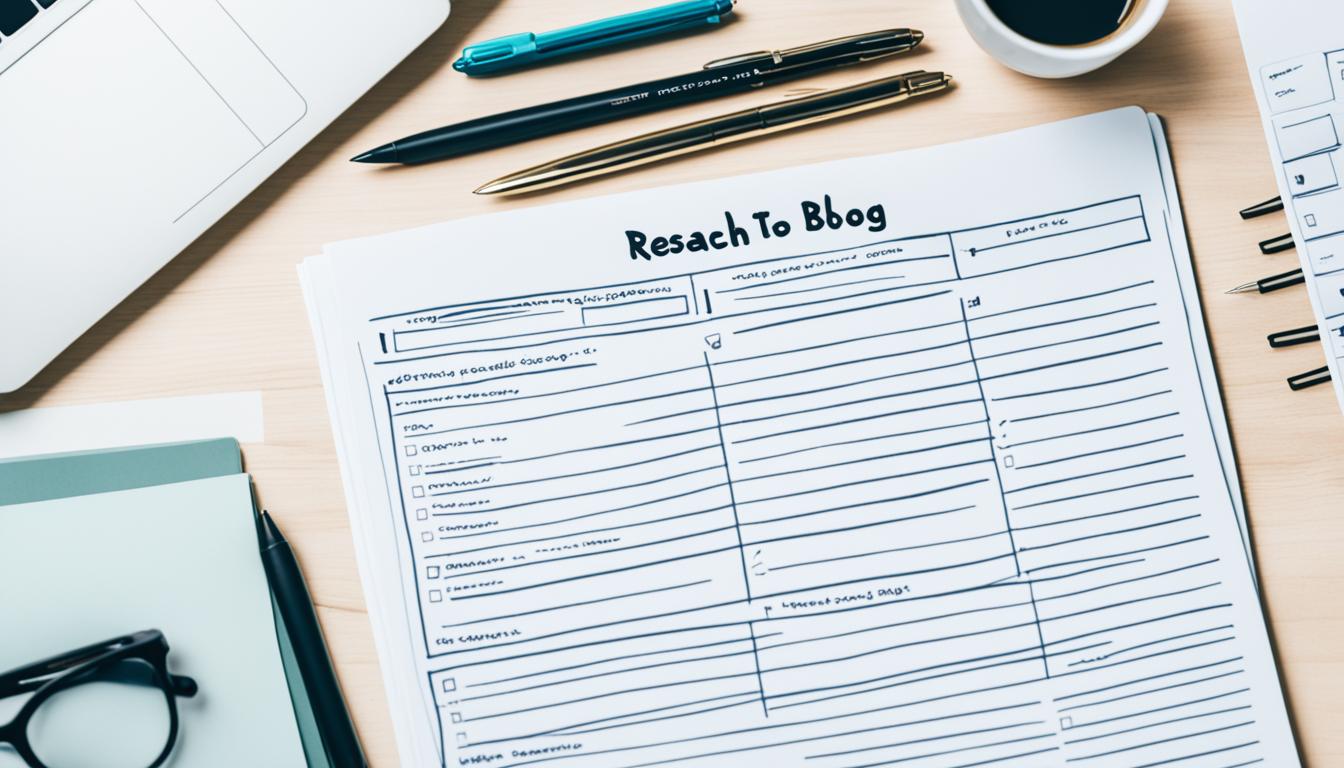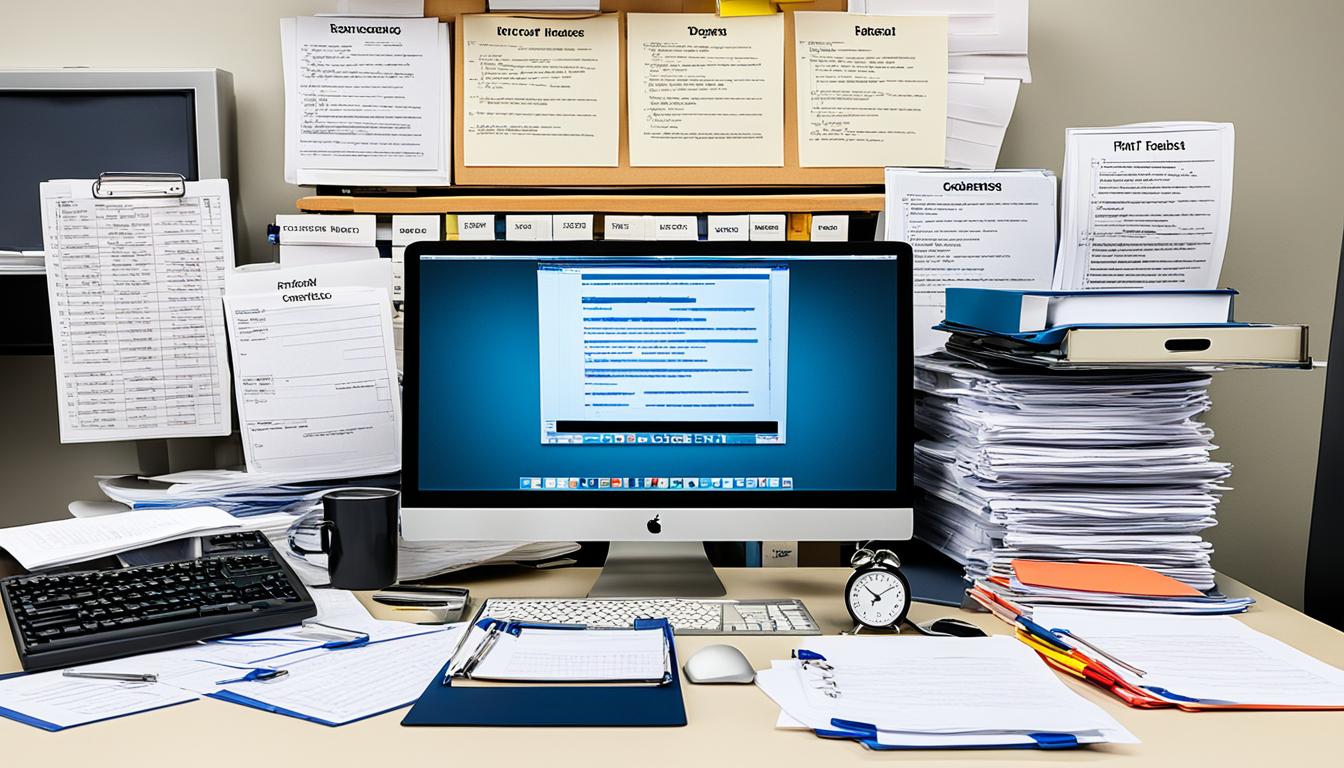Many bloggers lack productive blogging and feel like they don’t have enough time. There are 8,760 hours in a year, but distractions waste lots of them. Social media—including platforms like Facebook—is a big distraction. By being more efficient, you can reach your goals, like making money or growing your blog, especially if you’re a new blogger trying to boost your income and eventually monetize your work for the best results.
One good blogging strategy is to write more than you plan to post. This gives you extra posts and lets you take a break. Turning off notifications also helps you stay focused and get more done as a productive blogger or even a more productive blogger.
Try checking emails less but answering them better. This keeps your inbox clean and helps you reply faster. Also, write multiple posts when you feel creative. This helps keep your creative juices flowing and allows you to create awesome content. This makes you more efficient and organizes your content better. Using a feed reader saves time by keeping info in one place. Writing things down, such as research notes or blog post ideas, can help you stay organized and avoid forgetting new ideas. Doing tasks in batches makes you more focused. A ‘To Post’ list and a reserve of post ideas help you plan and avoid getting stuck.
Read less and pick out important content to stay efficient. Planning your posts before writing in detail helps too. This method makes writing less scary and more productive. It also helps you complete tasks while balancing time working and time resting so you don’t fall behind. Managing your working hours and being aware of your energy levels can help you stay productive and avoid burnout. Many writers sit at their computer for hours, so keeping a clean house and workspace is essential. Efficient productivity practices can free up time to spend with friends. And honestly, small habits like leaving a quick comment on other blogs help build community. Don’t worry about perfect website design or content planning—some things don’t matter as much as taking action.
Blogging a lot is important. Full-time bloggers aim
Using 90 minutes of work followed by 20 minutes of rest can boost productivity. Tools like Clockify make managing time easier. Lastly, getting rid of distractions greatly increases productivity.
Set Clear Goals
Success in blogging starts with clear goals. It’s important to invest time in setting clear goals and generating blog post ideas that align with your objectives. This step helps create a plan to guide your work. It keeps you focused. Many successful bloggers follow this plan. They show that setting goals can achieve great results.
Define Your Objectives

It’s important to know your blogging goals. They direct your efforts and keep you on track. Defining your objectives helps you create content that supports your blogging goals and benefits your audience. Think about what you want to achieve. This includes money, how much you post, email plans, and growing personally. Knowing these helps you focus and use your time well.
Create an Action Plan
With clear goals, plan your next steps. Break big goals into smaller tasks. Breaking down time-consuming tasks into manageable steps makes them less overwhelming. Set times to finish them. A good plan keeps you organized. It helps every step move you towards your big goals. Checking your plan every few months shows how you’re doing. It helps you see if you need to change anything.
Measure and Review Progress
Checking your progress is key. Use a good system to track what you do. This shows what works and what doesn’t. Reviewing your progress keeps you moving forward. It helps you reach your goals. Set times to look at how you’re doing. This helps you grow and tackle problems.
Develop a Content Plan

A solid content strategy is key for bloggers to grow and engage their audience. Keeping research notes and regularly brainstorming new ideas are essential parts of an effective content plan, helping bloggers capture inspiration and organize fresh topics for future posts. It helps schedule content efficiently while improving SEO. This strategy targets relevant keywords and topics.
Identify Key Topics
Finding topics that interest your audience and match your goals is vital. Use Google Analytics and keyword tools to find trending, SEO-friendly topics. These topics will help your blog get noticed.
Schedule Content Ahead
Planning your posts can save time and ease stress. An editorial calendar lets bloggers organize future posts. This ensures they keep publishing content regularly. It’s handy for posting about seasonal events when they’re most relevant.
Align with Blogging Goals
Your content should support your main blogging goals. This could be more website visitors, engaging readers, or earning more from affiliate sales. A targeted content plan focuses your efforts on these goals. It also offers a variety of content, meeting different reader needs and boosting SEO.
Create an Effective To-Do List
A to-do list for bloggers is more than random tasks. It matches larger goals. A good to-do list should include not only creative work but also administrative tasks, such as inputting financial data or preparing for tax season, to keep your blog running smoothly. With 214 shares on productivity tips, many want to improve their work. Here’s how:
Prioritize Daily Tasks
Start by prioritizing tasks. Put the most important tasks first. This makes sure key jobs get done on time.
Make your to-do list the night before. It helps set your goals for the next day. The author suggests having clear blogging goals to know what’s most important.
Use Productivity Tools

Productivity apps can make work smoother. They keep your to-do lists tidy. Some mix paper/spreadsheets and digital tools for planning.
Use different lists for different projects. This keeps things neat and organized. Managing a separate email account for blogging activities can also help keep communications organized, making it easier to handle newsletters, affiliate marketing, and business inquiries.
Review and Adjust
Check and change your list to keep it useful. Look at the undone tasks to spot delays. Review your lists weekly to stay on track and adjust as needed.
This keeps stress low and progress steady. Try checking emails and social media once a day for better focus.
Minimize Distractions
Keeping your blogging zone free of distractions is key for steady work. Watching YouTube videos can also be a major distraction for bloggers trying to stay focused. Every 8 minutes, most people get interrupted. This adds up to around 60 times in an eight-hour day. Such interruptions can really mess up a blogger’s focus and workflow.
Limit Social Media and Email Checks
It’s vital to check social media and emails less often. Being constantly ready for digital alerts increases stress. Having a schedule for checking social media helps. Scheduling Facebook posts and planning content across different social media channels can automate your workflow and reduce distractions. Too much social media and constant emails can make you less productive.
Set Up a Focused Workspace
A clean and orderly workspace helps you stay focused. Have a special work area with no mess. Using “Reader Mode” or full-screen helps reduce online distractions. Many bloggers struggle to find time to work without interruptions, as seen on Twitter.
Use Website Blockers

Blockers like StayFocusd and LeechBlock keep you off sites you don’t need when working. Asking yourself if what you’re doing is necessary can also help. After getting distracted, it takes 15 minutes to focus again. These tools save you a lot of time.
Avoid Multi-Tasking
Stanford University research shows that multitasking is not as good as doing one thing at a time. It’s better to focus on a single task, especially when doing important work. Trying to do too much at once can mess up your workflow and make you 40% less efficient. People who do many things at once often struggle to remember details or switch between tasks well.
Those who focus on one thing at a time are much more productive. Dell’s Stephanie Losee found out that talking with coworkers interrupts work the most, for 45% of people. This shows why it’s crucial to avoid distractions to work better.
Often, what we think is multitasking is really just switching between tasks. To work smarter, it helps to group similar tasks together. This means fewer stops and starts. A short list of the most important tasks can make you much more productive.
Breaking your time into sections with breaks in between is a smart move. It helps your brain reset and stay sharp. Splitting big jobs into smaller parts is also smart. Real routines and good plans can keep your work moving smoothly.
Having a daily plan boosts your motivation and your ability to get things done. Letting others do some tasks can make your work flow better. Connecting with a fellow blogger can also provide valuable support and accountability as you work toward your goals. Focusing on just one task is a proven way to do better work. This method helps bloggers create great content consistently. Many bloggers start their blog as a side project while working a full time gig, and gradually transition to blogging full time.
Batch Process Tasks
Batch working is great for making blogging better and more efficient. Studies show it saves time and boosts focus. It cuts down on the need to switch tasks, too.
Group Similar Tasks Together

Grouping tasks saves a lot of set-up time. For instance, write all your posts at once. Or, edit lots of photos together. Almost every blogging chore can be tackled this way. It keeps your work flowing smoothly.
Schedule Time Blocks
Setting aside specific times for tasks helps a lot with managing time. This means planning content or doing research at set times. For example, only checking emails once or twice a day reduces distractions. This helps you work better without stopping.
Maintain Flow State
Batching helps you stay really focused. When you’re deep in work, you do better and faster. It often takes 23 minutes to refocus after a pause. So, less stopping means more getting done. Bloggers say they write up to 10 posts in 5-6 hours by batching.
Utilize Productivity Tools
In the blogging world, using the right tools is key. Many tools exist to make content creation easier. They help save time and boost your productivity. Let’s explore some tools that are must-haves for bloggers.
Task Management Apps
Apps like Trello and Wunderlist help keep track of tasks. Trello uses visual boards for blog ideas, deadlines, and progress. Wunderlist is great for to-do lists and prioritizing tasks. Harsh Agrawal says these apps are vital for staying organized.
Content Planning Software
Managing your content is crucial for regular posting. Tools like Text Optimizer offer endless ideas from search trends. Pocket allows saving articles for later, making writing time more focused. These tools help plan your content, matching your blogging goals.
Social Media Scheduling Tools
Automation tools like Bufferapp are key for social media. They streamline sharing content on various platforms. Bufferapp helps schedule posts efficiently, says Harsh Agrawal. This keeps social media active without taking too much time.
Practice Regular Review and Reflection
Regular review and reflection is key for better blogging. It helps check progress, find areas to improve, and celebrate wins.
I hope these review and reflection practices inspire you to boost your blogging productivity.
Weekly Progress Review
Scott Hanselman suggests a weekly review every Friday. This time is for reflecting on successes and planning the next week. It helps identify what worked and what didn’t.
Adjust Strategies as Needed
Reviewing regularly makes it easy to fine-tune strategies. By looking at progress often, bloggers can change their plans to meet goals. This keeps their approach fresh and aligned with trends.
Reflect on Achievements
Thinking about blogging wins boosts motivation. J.D. Meier’s Rule of 3 helps set and track goals well. Celebrating milestones makes one feel proud and inspires more effort.
Maintain a Healthy Work-Life Balance

More than half of U.S. employees think their work-life balance is off. Keeping up with well-being is key for bloggers. Before COVID-19, only 20% worked from home. That number jumped to nearly 70% quickly. This change shows how critical it is for bloggers to set boundaries for a balanced life.
A balanced lifestyle is possible for bloggers by planning. They should mix work with fun, social times, or exercise. Using tools like the Pomodoro timer helps work in short intense periods. It’s also good to allocate specific times for tasks such as emailing or meetings.
It’s important to stop work at a consistent time each day. This keeps work from eating into personal time. Taking breaks and vacations is vital for a healthy balance. Remarkably, 64% of Americans say self-care boosts their confidence. Plus, 67% report it makes them more productive, and 71% feel happier.
Limiting work apps like Slack or email after hours cuts stress. Research suggests a 38-hour week is best for work. Productivity drops after 50 hours. Working too much can cause issues like depression and heart problems, the World Health Organization notes.
Getting help from a coach or therapist helps when feeling swamped. These steps help bloggers stay well. They lead to a more productive and happier blogging career.
Leverage Creativity Peaks
Using creativity peaks is a top way to boost blog content. These high-inspiration times are perfect for crafting many posts—you can grab the moment before you get caught in distractions. Writers can then have plenty of content ready for slower days. Knowing what kicks off these peaks is key to consistent high productivity. It’s a big deal because top leaders say they’re far more productive in such states, and many even watch how their focus shifts to choose the best times to work. These peaks can bring a wave of ideas that feel worth capturing.
Write Multiple Posts When Inspired
When inspiration hits, write a lot of blog posts. This time is when you’re most efficient, almost like a burning spark of motivation. Your skills match the challenge, and feedback keeps you going. It keeps your blog full and ready for new posts, making things more productive. Many bloggers love these rare bursts because they help you earn more time later for editing, learning, or taking courses that sharpen your craft.
Store Content Ideas
Having a good system for ideas is important. It lets bloggers save and develop ideas any time. Tools like Evernote or Trello help you keep reminders organized, so you won’t lose good thoughts. This makes your content strategy much stronger, especially when you sign up for content tools or templates with varying prices that fit your workflow.
Use Content Templates
Content templates make writing simpler and faster. They give a clear outline, helping you stay organized and complete posts without stress. This is especially helpful when you’re very creative. Templates let you focus on quality over structure, boosting your strategy. These methods really help improve your blog’s effectiveness and keep your momentum steady as you sit down to create.
Frequently Asked Questions
How can I improve my blogging productivity as a more productive blogger?
For better blogging, set clear goals. Make a detailed plan and check your progress regularly. This keeps you on track.
What are some effective blogging strategies for achieving my goals?
Good strategies include clear goals and a solid content plan. Add a useful to-do list and tools to help you.
How should I define my blogging objectives?
Think about what you want from your blog. It could be more readers, engagement, or money. Use SMART goals to guide you.
What is the importance of creating an action plan for blogging?
An action plan helps break goals into steps. It makes sure each step helps reach your blogging goals. This way, you work smarter.
How often should I review my blogging progress?
It’s good to check how you’re doing weekly or monthly. This lets you adjust plans and keep goals in sight.
How can I develop a content plan that aligns with my blog post goals?
Pick your main topics and plan posts ahead of time. Use seasons to your advantage. This helps you cover different areas and boost SEO.
What are the benefits of scheduling content ahead?
Planning your content ahead keeps posts regular. It helps you use busy times well and manage your work better.
How can I prioritize daily blogging tasks effectively?
Focus on what’s urgent and important first. High-impact tasks should come first. Tools can help keep you organized.
What productivity tools are beneficial for bloggers?
Apps for tasks, software for content, and tools for social media are key. They keep you organized, save time, and help you post regularly.
How can I minimize distractions while blogging?
Cut down on social media and email checks. Make a dedicated work area. Block sites that distract you.
Why is single-tasking better than multi-tasking for bloggers?
Focusing on one task at a time cuts down on switching tasks. This makes you more efficient overall.
What is batch processing and how can it enhance productivity?
Batch processing means doing similar tasks together in set times. It avoids stopping and starting, which increases focus and efficiency.
Why is it important to review and reflect regularly on your blogging activities?
Looking back at your work helps you see progress and needed changes. It also lets you celebrate your wins, boosting productivity.
How can bloggers maintain a healthy work-life balance?
Make time for yourself and set clear boundaries so you can protect your energy. Value your rest time for a lasting, rewarding blog life, and follow simple advice about when to spend your focus wisely—even when blog traffic keeps growing.
How can I leverage creativity peaks to boost my blog content?
When inspiration strikes, write a lot. Keep ideas in order and use templates to make writing easier. This helps keep your blog filled.

More Posts
Balancing Act: How to Manage Your Time for Both Gaming and Studying
College life is full of balancing acts. Students juggle studying with personal interests like gaming. They need to find a way to do well in school and still enjoy playing games like Rainbow...
8 Tips for Efficient Time Management During Exams
Time management is key to doing well in exams, yet nearly 88% of students find it hard. They struggle to balance study, fun, and self-care, often leaving things until the last minute. This...
Best 10 Productivity Softwares to Boost Your Efficiency
Managing upcoming tasks, juggling multiple projects, and staying on top of to-dos can often become overwhelming in our fast-paced digital world. Whether you’re striving to organize personal tasks or improve team management, finding...
Things Successful Managers Can Do To Stay Productive
Management is a challenging task and comes with its fair share of challenges. Being a good manager and balancing things adequately can be a daunting task; however, it can be navigated if handled...